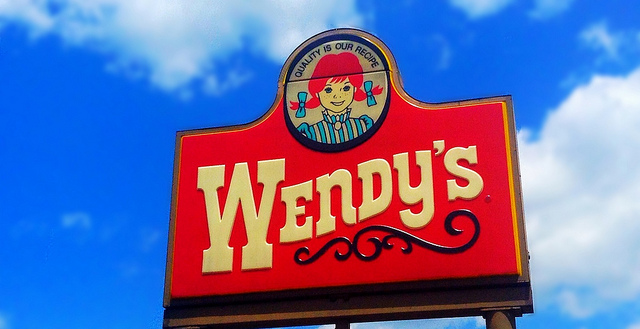
Image source: Mike Mozart via Flickr
Twitter has evolved into a snarky battleground between fast-food restaurants. The restaurants’ corporate Twitter accounts routinely jibe each other in back-and-forth exchanges as they mock their competitors’ food. Sometimes the jokes are subtle and good natured; sometimes they’re insulting and downright nasty.
Most Twitter users and media pundits find the witty tweets entertaining. Social media marketers say the snarky comments can boost Twitter followers, give personality to an otherwise faceless corporation, and increase awareness of the brand, ultimately boosting sales. The strategy is also affordable. Wendy’s, known as the wise-guy leading the trend, has a social media staff of five people in their 20s and 30s, plus an outside agency, a small price for a major corporation.
However, some PR and marketing experts question the wisdom of the ongoing food fights and question how much the strategy increases sales.
Following Wendy’s Example
Wendy’s started the trend by roasting critics on Twitter. When one tweeter wrote “you’re food is trash.” Wendy’s responded: “No, your opinion is though.” When another asked for directions to McDonald’s, Wendy’s replied with a photo of a trash can.
Since the leaks are already out there.. pic.twitter.com/ZFUVUKqhMO
— Wendy’s (@Wendys) October 24, 2018
Other fast-food restaurants began to follow Wendy’s example.
In a promotion in June, Burger King said customers could trade their fries for its onion rings — clearly taking aim at archrival McDonald’s, USA Today reported. Burger King tweeted the reason for the promotion: “because we have them and they don’t.”
Mainstream PR and marketing players consider it an unusual strategy. Social media and customer service personnel at major corporations typically worry about appeasing customers and being politically correct. Mocking customers and competitors in public can be risky for some brands, but fast-food lends itself to humor more than other businesses.
“If I go in for Lasik surgery, I don’t want my doctor to be really hilarious,” Wendy’s chief marketing officer Kurt Kane told USA Today. “When it comes to quick-service restaurants, they’re a lighthearted category.”
A Strategy that Backfired?
The aggressive new style is the fast dining industry may have peaked this past summer when IHOP temporarily changed its name to IHOb in a PR stunt designed to promote its burgers.
Wendy’s served up the most savage response: “Remember when you were like 7 and thought changing your name to Thunder BearSword would be super cool? Like that, but our cheeseburgers are still better.”
Derisive and mocking comments from competitors only increased media coverage, writes Drew Kerr, president and founder of Four Corners Communications, in The Drum. “The snarky pile-on from Wendy’s, Burger King, Chili’s, Checkers and Rally’s, Denny’s, and Whataburger led to a slew of breathless lemming-like articles giving more attention to the new burger than IHOP ever imagined in its media plan,” Kerr says.
IHOP should tell Wendy’s that the “b” stands for backfired, he adds.
The Knives Come Out
lets see if you can turn our frozen beef sheets into roast beef you corporate cowards
— Steak-umm (@steak_umm) January 4, 2018
An exchange between Wendy’s and Steak-Umm heated up into an insult-trading flame-out. Steak-Umm challenged Wendy’s to “see if you can turn our frozen beef sheets into roast beef you corporate cowards.”
Wendy’s bit back: “You aren’t verified because your tweets are just a bunch of try hard edgelord fodder. Quit trying to sit at the table with the big kids.”
The exchange continued for a half-dozen more messages. Steak-Umm at one point called Wendy’s “an old queen trying desperately to hold on to your crown,” writes David Z. Morris at Fortune. The exchange suggests that nastiness has become an approved social media strategy for some major brands.
Restaurants have to be careful that their social media snarkiness doesn’t escalate further and, especially, doesn’t filter into their on-site customer service. In the final analysis, most people (and especially women) don’t like nastiness even on social media – and may take their business elsewhere as their retort. Nastiness is not a good corporate reputation attribute.
The nasty restaurant exchanges also show how abusive comments frequently dominate Twitter, a problem that has slowed Twitter’s user growth and could eventually sink the network.
Bottom Line: In a controversial marketing strategy, fast-food restaurants increasingly mock and insult each other on Twitter. While the companies gain followers and attention, some observers condemn the social media marketing strategy.
William J. Comcowich founded and served as CEO of CyberAlert LLC, the predecessor of Glean.info. He is currently serving as Interim CEO and member of the Board of Directors. Glean.info provides customized media monitoring, media measurement and analytics solutions across all types of traditional and social media.




